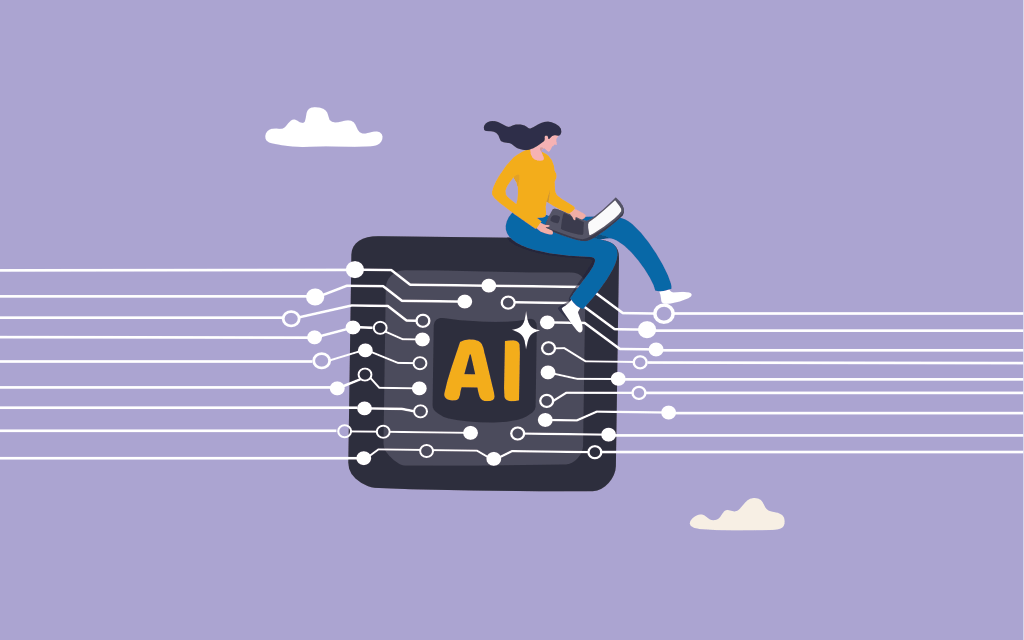In recent years, the rapid advancement and increasingly common use of artificial intelligence (AI) has significantly transformed numerous industries, with accounting being no exception.
Join us as we explore the varied role of AI in modern accounting, examining its applications, benefits, and future implications.
Efficiency and accuracy
One of the primary benefits of AI in accounting is the significant improvement in efficiency and accuracy it brings to financial record-keeping and transaction processing.
Traditional accounting processes often involve a high degree of manual data entry and reconciliation, which are not only time-consuming but also prone to human error.
AI-powered tools, like automated data entry systems and intelligent reconciliation platforms, can process financial data at a fraction of the time it would take a human to perform the same task.
For example, tools like Receipt Bank and AutoEntry automate the extraction and processing of information from invoices, receipts and bank statements, significantly reducing the time accountants spend on data entry.
Moreover, AI systems are equipped with machine learning algorithms that can improve their accuracy over time. They learn from historical data and can identify and correct errors based on patterns, leading to more reliable financial records.
This capability is particularly beneficial in complex areas such as tax accounting, where AI can ensure compliance with constantly changing tax laws and regulations.
Predictive analysis
AI tools extend beyond automating tasks, they can provide strategic insights at a faster rate than previously possible. Through predictive analysis, AI can forecast future financial trends based on past data, helping businesses with budgeting, financial planning and risk management.
For instance, platforms like Xero and QuickBooks utilise AI to offer instant cashflow forecasting, enabling accountants to make fast, informed decisions about how to manage their client’s finances.
Decision support
AI-driven decision support systems can analyse vast datasets to identify opportunities for cost reduction, investment, and growth. By leveraging AI, accountants can move from a traditional role of financial reporting to a more strategic role, advising clients on high-level financial strategy and business development.
Fraud and risk
AI plays a crucial role in enhancing the security of financial transactions and mitigating risks associated with fraud.
By analysing transaction patterns and identifying anomalies that deviate from the norm, AI systems can detect potentially fraudulent activities in real-time.
This capability is especially important in an era where financial transactions are increasingly digital and susceptible to cyber threats. Tools such as MindBridge AI Auditor harness AI to assess the risk level of transactions, highlighting potential issues for further investigation by skilled accountants.
This proactive approach to fraud detection not only protects accountants from financial loss but also reinforces their reputation for integrity and reliability.
Customised services
Accounting firms can use AI to offer more personalised services to their clients. These systems comb through extremely large volumes of information to gain specialised insights, which accountants can use to identify client-specific needs and preferences.
Machine learning technology can help identify tax-saving opportunities for individual clients based on their spending patterns and financial history. This level of customisation enhances the value firms can provide for their clients, helping them build stronger client relationships and providing a competitive advantage in the market.
Challenges
While the integration of AI tools in accounting offers numerous benefits, it also presents several challenges.
Firstly, the adoption of AI requires significant investment in technology and training, which can be a barrier for smaller firms. There’s also the challenge of data privacy and security. AI systems process vast amounts of sensitive financial information, which makes them appealing targets for cyber attacks.
Furthermore, the reliance on AI for decision-making raises concerns about the loss of human oversight, which can lead to ethical dilemmas, especially if AI systems make errors or are biased due to flawed algorithms.
The rapid technological advancement may also lead to a skills gap in the industry as experienced professionals struggle to adapt and new entrants require more specialised training.
Lastly, there’s the challenge of regulatory compliance, as the legal framework struggles to keep pace with the fast-evolving capabilities of AI, posing potential compliance risks for firms.
Despite the challenges these changes will bring, there are also countless opportunities, and adapting to and capitalising on AI early will prove beneficial for accountants.
The future of AI in accounting
Looking ahead, the role of AI in accounting is set to expand further. As AI technology evolves, we can anticipate more sophisticated applications, such as real-time financial advice to clients powered by AI chatbots and deeper integration of AI in strategic financial planning.
However, this transformation also necessitates a shift in the skill sets of accounting professionals. In addition to traditional accounting knowledge, accountants will need to develop a strong understanding of AI and data analytics to fully leverage the benefits of this technology in their practice.
AI is redefining the accounting profession by automating routine tasks, enhancing decision-making, improving fraud detection, and enabling personalised services.
As we move forward, the integration of AI in accounting practices will not only continue to increase efficiency and accuracy but may also transform the role of accountants into strategic advisers.
Embracing AI could become a necessity for accounting firms aiming to stay competitive and thrive in the digital age.
Contact us to find out how our marketing services can help you embrace change.




